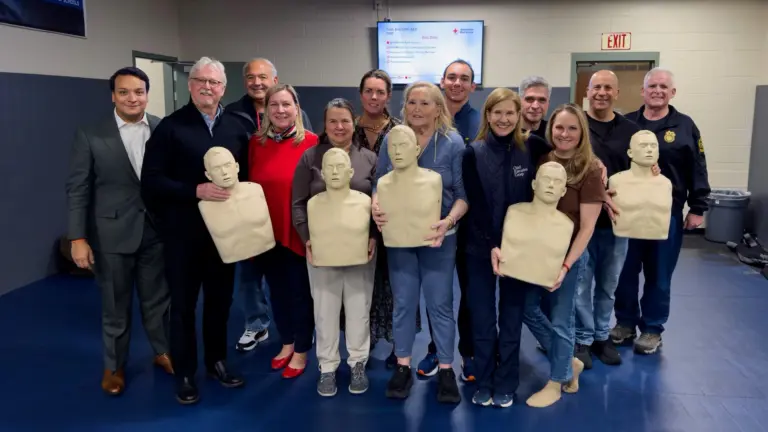By Clay Kaufman
As adults, once we leave high school or college we quickly realize that the “real world” is very different. The practice of law is not the same as law school; studying architecture in school is not the same as working full time for an architect; and even just holding a job is a very different experience than completing homework assignments for your teachers.
Having a job as a teenager can be an incredibly valuable and eye-opening experience. Teenagers are busy, so even a summer job, volunteer job or internship can be valuable in many ways.
Independence: it is natural for teenagers to want to be more independent, after relying on their parents for everything for so many years. Holding a job or an internship gives them a chance to be on their own and start to navigate the “real” world in a way that can really build confidence. I had a student once who loved tinkering with bicycles. His parents were generally supportive, but didn’t think of his hobby as anything special. After a two-week internship during the school year at a bike shop, the student was offered a paid afterschool job by the shop owner, who noticed his skill with fixing bicycles and sang his praises to anyone who came into the shop. The student felt so proud to be recognized for his skills, and appreciated having his talents recognized independently.
Self-advocacy: research shows that self-advocacy is one of the most important skills a student can learn. In school, self-advocacy can mean asking a teacher for extra help or asking to work on the school play or for the school newspaper. Many students are hesitant to speak up in those situations. At The Cedar School here in Greenwich, we work with bright, college-bound students who have language-based learning differences, and it’s particularly important for our students to speak up when they need extra time for an assignment or when they need clarification about instructions. And self-advocacy becomes even more important at the workplace: if you are given a task by your supervisor and you come across something unexpected, it is vitally important to ask your supervisor what you should do.
Responsibility: when you are sick and can’t go to school, your parent or guardian calls in, and school goes on without you until you return. One less student in the classroom doesn’t change the way the class is taught. However, with a job, showing up on time, working hard and letting your supervisor know if you won’t be in really make a difference, as the job is relying on you. While that can be seen as a burden sometimes, teenagers often like the fact that someone other than their parents is relying on them. And that sense of responsibility can be very motivating: I had a student who was regularly late to school and not always supremely motivated. For our school’s internship program, he took a job with a local lawyer. After three days on the job, his mom called me up and said she couldn’t believe it! He was up every day at 6 am, fixed his own lunch and took two buses to get to a job he loved, often staying late to get the work done. He returned to school two weeks later incredibly energized about a potential career he hadn’t really known anything about
Real world experience: in my conversations with college representatives, I consistently hear that they love seeing applications from students who have held a job during high school, as the skills teenagers need for successfully holding a job are so helpful and necessary for succeeding in college.
Having a job can be particularly rewarding for students who struggle in school, as the traditional model of school doesn’t work for every student. All teenagers need to feel successful in some area of their life. Having worked with students with dyslexia for the past 15 years, I have seen that these students have tremendous strengths in hands-on and experiential learning, in recognizing patterns and in out-of-the-box thinking. Unfortunately, those strengths don’t always make them successful in traditional schools. Having a job in an area of expertise allows them to recognize their strengths and build on them.
I have had an internship program at the high schools I have led, and it has been one of the highlights of the year for students. In a structured, two-week volunteer internship during the school year, students have been able to work for lawyers, judges, architects, artists, schools, museums, TV stations, film producers, and even in the kitchen at one of the fanciest restaurants in Washington DC. One of my students was interested in architecture, and before considering going to college to study architecture, wanted to know what an architect actually did every day. In 10th grade he spent his internship with a landscape architect, and in 11th grade with a building architect. After completing his 11th grade internship, he told me, “Mr. Kaufman, I loved both my internships, but I realized that I could never look at buildings the rest of my life.” He went on to major in landscape design at Savannah College of Art and Design, and found a job in New York City with a boutique landscape design firm–his career was set.
Just because of the way life works, teenagers are often reminded of what they can’t do, what’s hard for them or the negative assumptions society sometimes holds about teenagers. Having a job–and perhaps earning their own spending money–can build their confidence, allow them to build on their strengths, build their independence and reinforce the skills they need for college and for life. And isn’t it nice to already have something for your resume?
Clay Kaufman, a longtime educator and school leader, is founder and Head of School at The Cedar School, a high school for students with language-based learning differences, such as dyslexia, here in Greenwich.



